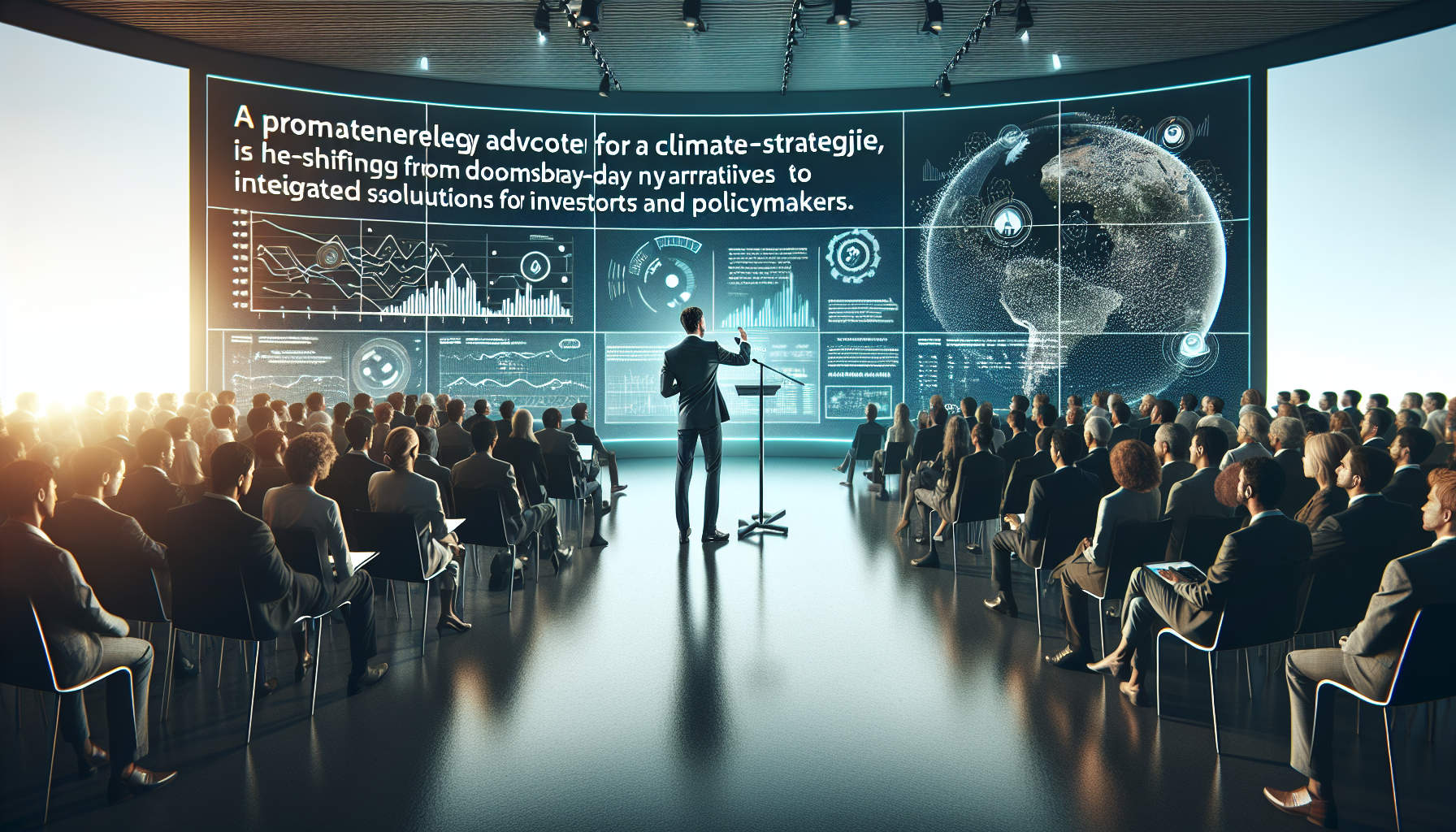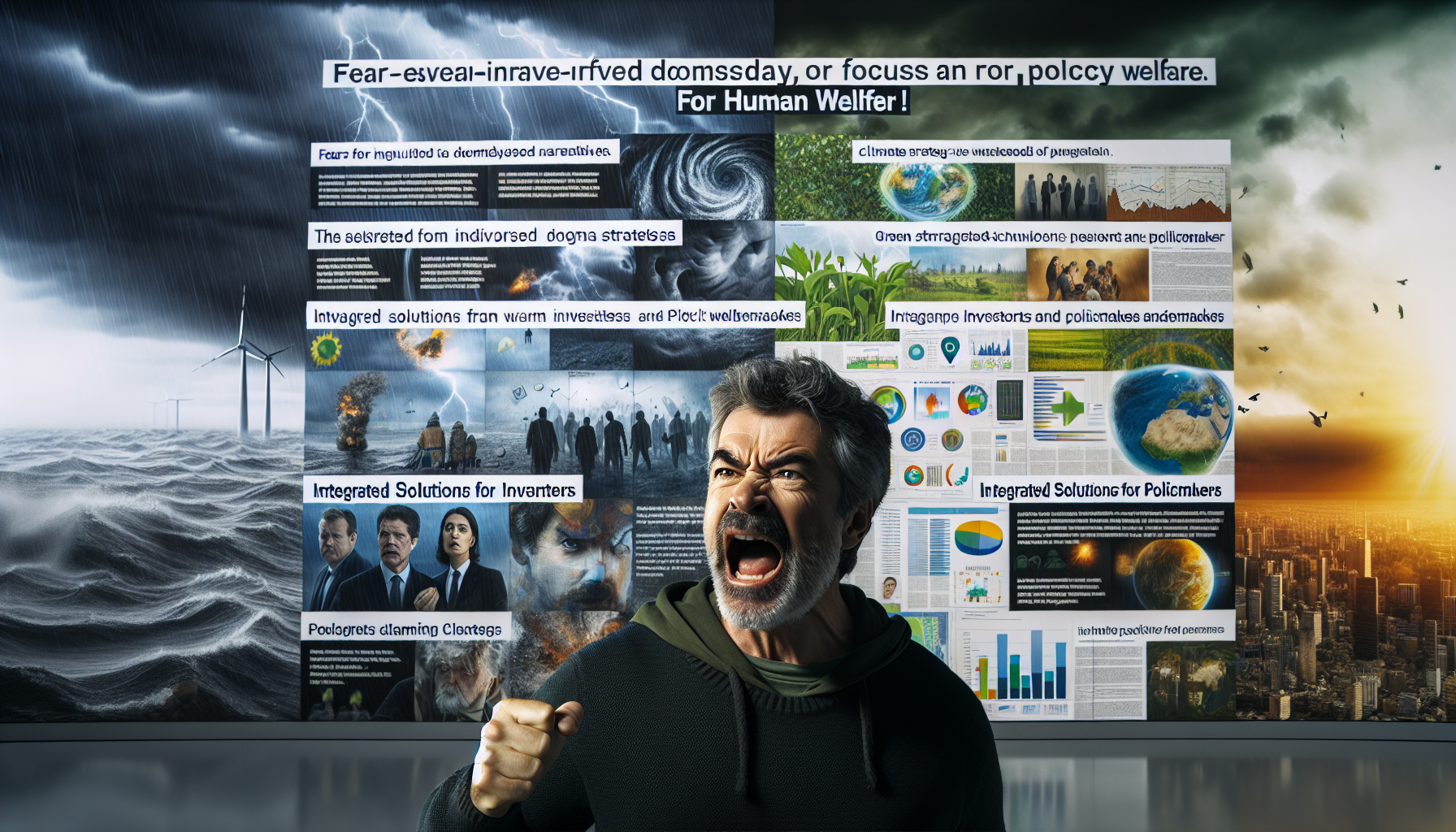Bill Gates Calls for a Strategic Pivot: Integrating Climate Action with Human Development
In a significant and thought-provoking intervention ahead of the upcoming COP30 summit, Bill Gates, the renowned technologist and philanthropist, has articulated a nuanced shift in his climate advocacy. Moving beyond the stark warnings of his 2021 book, "How to Avoid a Climate Disaster," Gates is now championing a more integrated approach. He argues that the global conversation has become overly fixated on emissions reduction at the expense of broader human welfare goals like poverty alleviation and disease prevention. This recalibration, detailed in a recent letter and an exclusive CNBC interview, suggests a major strategic rethink for one of the world's most influential voices on climate change and sustainable investment.

Beyond the Doomsday Narrative: A Holistic Vision for Human Welfare
Gates directly addressed what he termed the "doomsday view" of climate change, a perspective he believes can be counterproductive. While not downplaying the severity of the climate crisis, he posits that framing it solely as an environmental catastrophe fails to capture the interconnected nature of global challenges. "Climate is super important but has to be considered in terms of overall human welfare," Gates stated, emphasizing that this intellectually rigorous position may not be universally popular but is essential for effective long-term strategy.
The core of his new argument is that resources are disproportionately allocated. He suggests that a singular focus on cutting emissions, without parallel investments in health, agriculture, and economic development in the world's poorest regions, is an incomplete solution. For instance, a community struggling with malaria and food insecurity has a more immediate and tangible set of crises than the long-term threat of a changing climate. By addressing these foundational issues, Gates believes we not only improve lives directly but also build more resilient societies capable of participating in and benefiting from the clean energy transition.
The Geopolitical Context: Navigating a Shifting Political Landscape
Gates's comments cannot be divorced from the current geopolitical reality. The letter comes as the world prepares for COP30 in Brazil, nearly a decade after the landmark Paris Agreement. Gates himself called the Paris goal of limiting warming to 1.5 degrees Celsius "unrealistic," a candid assessment that reflects the world's sluggish progress.
The Trump Era and Corporate Stewardship
The political volatility in the United States, a key global player, has created a stop-start dynamic in international climate commitments. The U.S. withdrawal and re-entry into the Paris accord under different administrations has underscored the fragility of purely government-led action. Reports from earlier this year, including one from The New York Times, indicated that Gates's own climate investment fund, Breakthrough Energy, underwent staff cuts, a move interpreted as "retooling his empire for the Trump era." This context makes Gates's pivot appear not just philosophical, but also pragmatic. With federal policy uncertain, the burden and opportunity increasingly fall on private sector innovation and corporate leadership.

Gates expressed disappointment in political pullbacks but pointed to companies like Microsoft, Meta, and Alphabet as beacons of progress. These tech giants have set ambitious 2030 targets for net-zero or even carbon-negative operations, demonstrating that corporate ambition can, to some extent, transcend political cycles. He credited continued support for green tech innovation as the key driver for reducing costs, making solutions like green hydrogen and advanced nuclear energy more accessible over time.
The AI Conundrum: Climate Villain or Sustainability Savior?
No modern technology discussion is complete without addressing the elephant in the room: Artificial Intelligence. Gates weighed in on the dual-edged nature of AI, a sector experiencing explosive growth and investment. He acknowledged that many AI investments will be "dead ends," hinting at a potential tech bubble, but was unequivocal about its necessity: "If you want to be a tech company you don't get to say no let's check out of this race."
This aligns with recent statements from within the industry, most notably from Microsoft's own sustainability chief, Melanie Nakagawa. She admitted that the company's sustainability "moon has gotten further away" precisely because of the immense energy demands of its AI data centers. However, in a paradoxical twist, she and Gates see AI not just as the problem, but as the most powerful part of the solution. AI's ability to optimize complex systems—from smart grids to agricultural yields to carbon capture processes—could ultimately provide the "bigger, faster, and more powerful rocket" needed to achieve long-term climate goals.
What Gates's Pivot Means for the Market and Investors
Bill Gates's refined focus sends a powerful signal to global markets and the investment community. It suggests a maturation of the climate tech sector, moving from a singular, environmentalist-driven narrative to a more complex, integrated investment thesis centered on sustainable development.
Investors may begin to see increased opportunities in companies and funds that operate at the intersection of climate and development. This includes:
Climate-Smart Agriculture: Technologies that increase crop yields while reducing water and chemical use, directly linking food security with environmental stewardship.
Distributed Renewable Energy: Microgrid and solar home system providers that bring power to underserved communities, fostering economic activity and leapfrogging fossil fuels.
Adaptive Health Technologies: Innovations in disease tracking and healthcare delivery that are resilient to climate-induced disruptions like extreme weather.
Furthermore, Gates's stance validates the role of large-cap tech companies as crucial players in the energy transition. Their massive investments in AI and data center infrastructure, while energy-intensive, are also forcing rapid innovation in energy efficiency and procurement of clean power, creating a ripple effect across the energy sector.
Conclusion: Market Implications for the Coming Weeks
Bill Gates's strategic pivot from a pure "climate disaster" narrative to a "human welfare" integrated model is more than a philosophical shift; it is a potential market catalyst. In the immediate weeks leading up to and following COP30, we can expect several key developments. The dialogue at the summit itself is likely to be influenced, with increased emphasis on "just transition" frameworks and funding mechanisms that link climate finance with development goals. This could benefit ESG (Environmental, Social, and Governance) funds that have a strong "S" and "G" component, not just a narrow "E" focus.
For investors, the coming period should be watched for increased volatility and opportunity in the climate tech sector, particularly for companies that demonstrate tangible co-benefits for health, poverty, and education. Gates's comments may also put a spotlight on the energy and resource requirements of the AI industry, potentially driving investment into nuclear, geothermal, and next-generation solar technologies to power the data centers of the future. In short, Gates is reframing the climate challenge as the ultimate human development opportunity—a narrative that could reshape investment portfolios and policy agendas for years to come.

